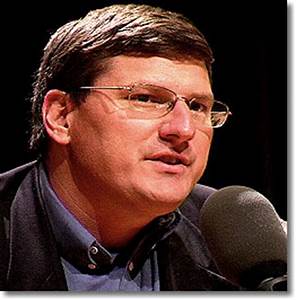Democracies live and die on the ability of an informed citizenry to engage in open debate, dialogue, and discussion about difficult issues. Freedom of Speech is one of the touch-stone tenets of American democracy the idea that, no matter how out of step with mainstream society one's beliefs might be, the retained right to freely express opinions thus derived without fear of censorship or repression existed.
No More
In the aftermath of the Russian invasion of Ukraine, the Russophobia which had taken grip in the United States since Russia's first post-Cold War president, Boris Yeltsin, handed the reins of power over to his hand-picked successor, Vladimir Putin, has emerged much like the putrid core of an over-ripe boil. That this anti-Russian trend existed in the United States was, in and of itself, no secret.
Indeed, the United States had, since 2000, pushed aside classic Russian area studies in the pursuit of a new school espousing the doctrine of "Putinism," centered on the flawed notion that everything in Russia revolved around the singular person of Vladimir Putin.
The more the United States struggled with the reality of a Russian nation unwilling to allow itself to be once again constrained by the yoke of carpetbagger economics disguised as "democracy" that had been prevalent during the Yeltsin era, the more the dogma of "Putinism" took hold in the very establishments where intellectual examination of complex problems was ostensibly transpiring the halls of academia which in turn produced the minds that guided policy formulation and implementation.
Outliers like Jack Matlock, John Mearsheimer, and Stephen Cohen, were cashiered in favor of a new breed of erstwhile Russian expert, led by the likes of Michael McFaul, Fiona Hill, and Anne Applebaum.
Genuine Russian area studies was supplanted by a new field of authoritarian studies, where the soul of a nation that once was defined by the life and works of Dostoevsky, Tolstoy, Gorky, Lenin, Stalin, Sakharov, and Gorbachev was distilled into a shallow caricature of one man Putin.
We had seen this play before, in the buildup to the U.S.-led invasion and occupation of Iraq, when the national identity of a people who traced their heritage back to the Biblical times of Babylon was encapsulated in the person of one man, Saddam Hussein. By focusing solely on a manufactured narrative derived from a simplistic understanding of one man, the United States papered over the complex internal reality of the Iraqi nation and its people and in doing so, set itself up for defeat. It was if Iraq's long and storied history ceased to exist.
The impact this erasure of context and relevance from the national discourse was felt in the lead up to the decision to initiate what was, by all sense and purposes, an illegal war of aggression the greatest war crime of all, according to U.S. Supreme Court justice and U.S. chief prosecutor during the Nuremburg War Crimes Tribunal, Robert H. Jackson.
My own personal experience serves as witness to this reality. As a former chief weapons inspector in Iraq from 1991-1998, I was uniquely positioned to comment on the veracity of the claims made by the United States that Iraq retained weapons of mass destruction capability in violation of its obligation to be disarmed of such.
When my stance was deemed convenient to a narrative attacking a Democratic president, Bill Clinton, I was readily embraced. However, when my fact-based narrative ran afoul of the regime-change policies of Clinton's successor, George W. Bush, I was cast aside as a pariah.
Politics of Personal Destruction
The politics of personal destruction were employed in full and I was attacked for being a shill of Saddam and, perhaps worst of all for someone who served his nation proudly and honorably as an officer of U.S. Marines, anti-American.
It didn't matter that, without exception, the fact-based arguments I made challenging the case for war with Iraq proved to be accurate at the time and place where the arguments could have, and should have, resonated greatest (during the buildup to the invasion) that my voice had been effectively silenced.
I see the same template in play again today when it comes to the difficult topic of Russia. Like every issue of importance, the Russian-Ukraine conflict has two sides to its story. The humanitarian tragedy that has befallen the citizens of Ukraine is perhaps the greatest argument one can offer up in opposition to the Russian military incursion. But was there surely a viable diplomatic off ramp available which could have avoided this horrific situation?
To examine that question, however, one must be able and willing to engage in a fact-based discussion of Russian motives. The main problem with this approach is that the narrative which would emerge is not convenient for those who espouse the Western dogma of "Putinism," based as it is on the irrational proclivities and geopolitical appetite of one man, Vladimir Putin.
(Note: You can view every article as one long page if you sign up as an Advocate Member, or higher).





